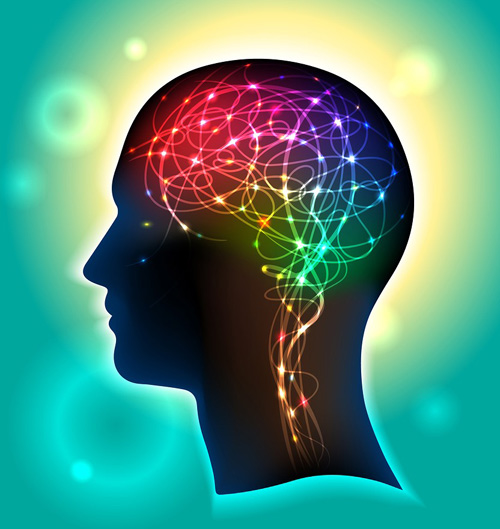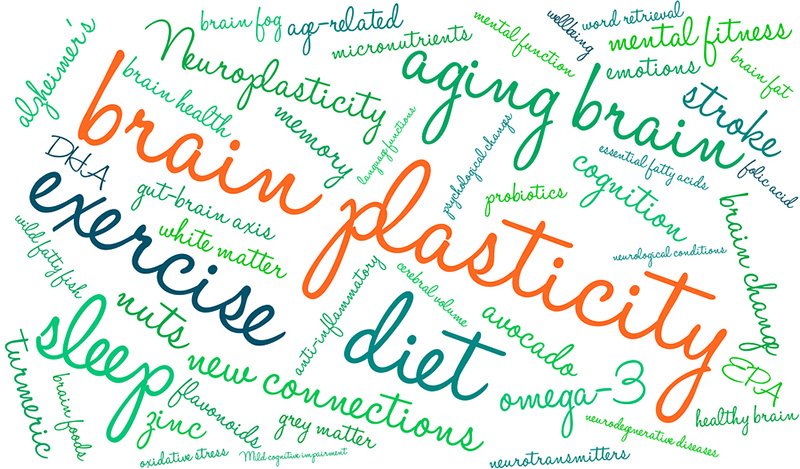What is Neuroplasticity -- and how can it affect your health?

For the purpose of this article, our focus will be on how a
healthy brain keeps keeps the entire body healthy. Considering the aging population,
it means the ability to both maintain independence and control our lives.
Neuroplasticity-based intervention for normal age-related cognitive declines demonstrates that 80-year-olds were capable of developing the memories of 70-year-olds; and Dr. Michael Merzenich believes it is possible to reduce neurocognitive age by twenty-five years.
What is Neuroplasticity?
We once believed that the brain was fixed and incapable of
change after the first few years of life. The good news is that we now know
that the brain is not only capable of change throughout our lifetime, it is sometimes
possible to change the structure and function of the brain even after injury or
disease.
So, what is neuroplasticity? It is the brain's ability to physically change its structure and function in response to our experiences, environment, and thoughts.
Neuroplasticity and Neurogenesis
Neuroplasticity is the body’s ability to generate new nerve cells in the brain.
Neurogenesis is the process through which new neurons are produced.
We lose brain cells as we age. Neuroplasticity and neurogenesis enable us to slow or reverse that process.
To counter brain atrophy we need to remain actively engaged in social, mental, and physical activities.
Boredom, monotony, inactivity, and isolation wreak havoc on brain health.
What to do? Play games. Set goals. Learn new things. Exercise. Use it or lose it!
Neuroplasticity and Physical Exercise
Several Meta-analyses demonstrate that physical fitness in adults over age 55 increased cognitive performance.
Strength training and aerobic exercise create a healthy brain by strengthening the heart and lungs, which deliver blood, oxygen and fuel to the brain. Further evidence shows that exercise can delay the onset and progression of degenerative disorders in the brain.
We know that creating new neurons (neurogenesis) helps slow age-related mental decline. Exercise creates new neurotransmitters and neuron connections.
The take away -- exercise improves cognitive function by changing the structure and function of the brain.
DNA -- The Mind and Genetics
The new and expanding field of science known as epigenetics (this may bore some of you, but I absolutely LOVE this stuff), proves that you are not at the mercy of your specific DNA sequence.
The brain is constantly changing its structure, cell number and chemistry as a result of everything we do, experience, think and believe.
Additionally, there remains the fact that not all genes express, and they can also be suppressed.
DNA responds to signals from the mind. Astonishingly, 80% to 90% percent of those signals to your DNA are from thoughts, and only 10% to 20% are biological.
Thinking affects gene expression epigenetically. Dr. Caroline Leaf, world-renowned neuroscientist, states that “you have the power to choose what you believe and your reactions to the events and circumstances of life.”

Your Thoughts Affect Your Health
Current neuroscience indicates that thoughts and words cause changes in the brain through neuroplasticity. Because functional changes such as attention span, anxiety, depression, fear, anger may be caused by neuroplasticity, these unwanted changes may also be reversed by the same process that built them into our brains.
Our thoughts affect our stress levels, the brain, hormones, and immune defenses. Each of these impacts both psychological and physical wellbeing.
Stress levels increase cortisol levels, which interfere with neurotransmitters and memory. Stress is associated with 85% of disease; and some studies indicate that 70% to 98% of illnesses are a direct result of thought life.
Dr. Herbert Benson, president of the Harvard Medical School’s Mind-Body Institute notes that toxic thoughts lead to stress, which affect the body’s healing capacities. Dr. Bruce Lipton claims that 98% of diseases are the result of lifestyle choices and thinking. Dr. Caroline Leaf states that, “we need to train and discipline our minds in order to… have healthy bodies.”
This isn't guesswork or woo-woo. Changes in the brain during these aforementioned activities are measurable on a brain scan.
 Making changes in the brain requires willful effort such as meditation on positive things, prayer, and self-talk.
Making changes in the brain requires willful effort such as meditation on positive things, prayer, and self-talk.
More Topics That May Interest You
Recommended Reading
LAUGH!
Did you know that laughter reduces stress hormones, boosts the immune system, and reduces cortisol levels? Read about Laughter and Your Health.

Writer/attorney, Bonnie Gabaldon, is the owner/developer of the health & fitness website, BodiesOfEvidence.com.
Bonnie graduated summa cum laude from Oregon State University with honors. She is a member of Beta Beta Beta Biological Honor Society and Phi Kappa Phi Honor Society.
She researched and authored a significant undergraduate independent study paper, The Effect of Female Hormones on Elite Female Athletes During the First Trimester of Pregnancy.
Bonnie attended the University of New Mexico School of Law and Georgetown Law Center, and has been a licensed attorney since 2003.
Some of the advertisers on my website are affiliate partners, which means that I may receive a small commission from any sale, at no extra cost to you. For example, as an Amazon Associate I earn a small commission from qualifying purchases.
Your purchases help to support this free-information website. Thank you.
The content of this website is for informational purposes only and not intended to be taken as a replacement for professional medical advice, care, diagnosis or treatment by a doctor, dietitian, physical therapist, nutritionist or fitness instructor.
DO NOT BEGIN ANY EXERCISE PROGRAM WITHOUT CHECKING WITH YOUR DOCTOR FOR UNDERLYING CONDITIONS THAT MAY PREVENT YOU FROM DOING SO.





